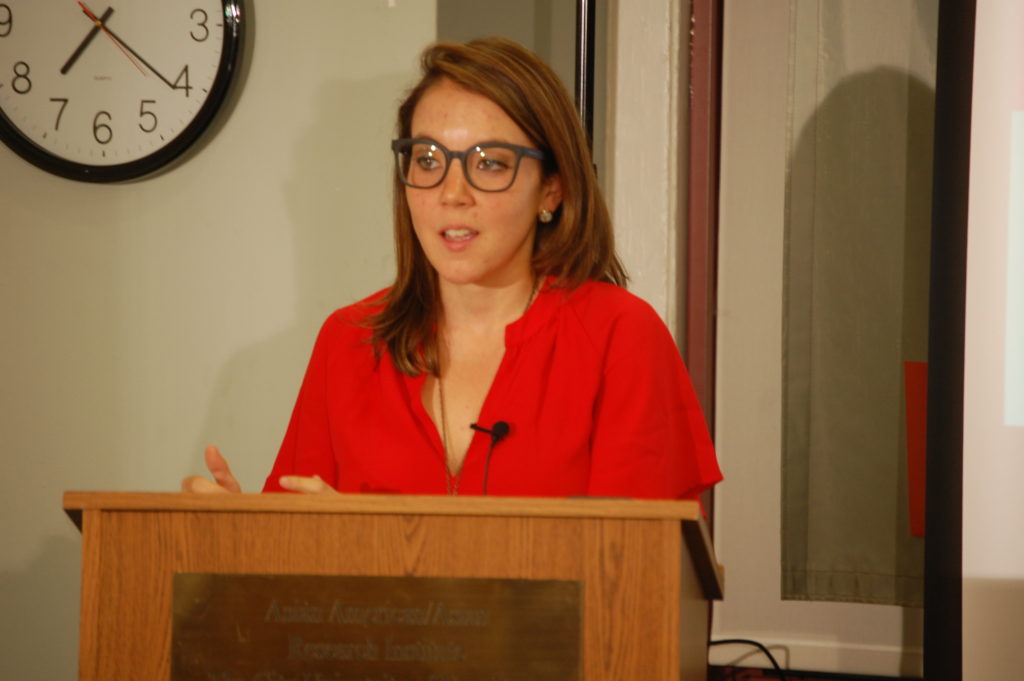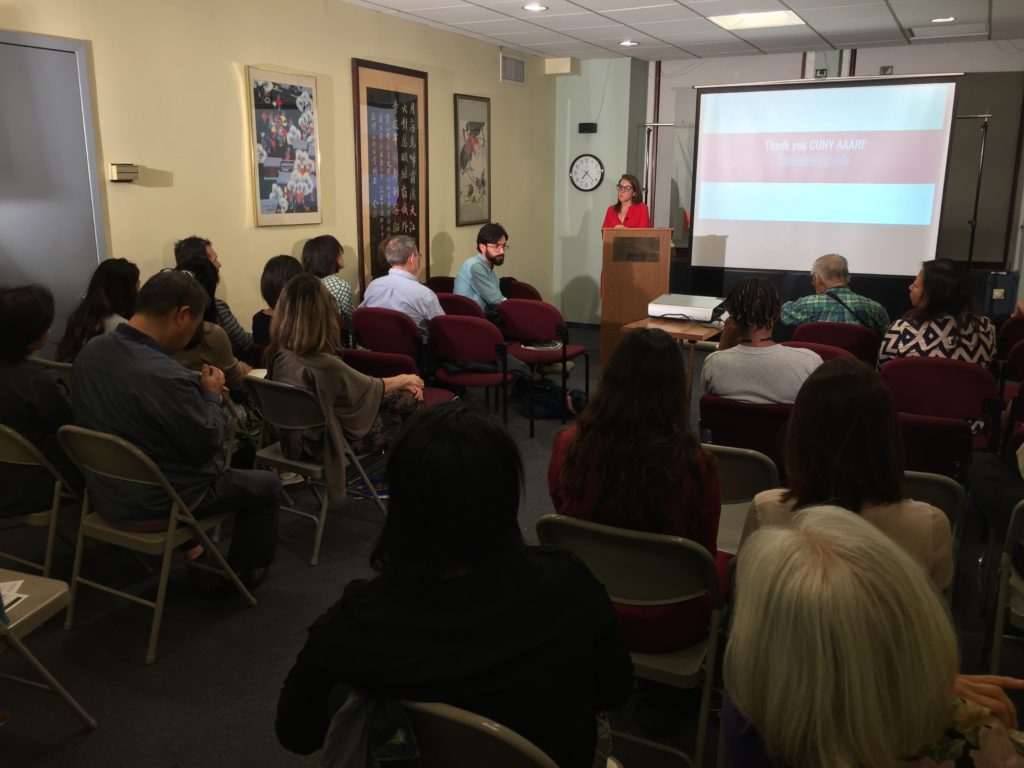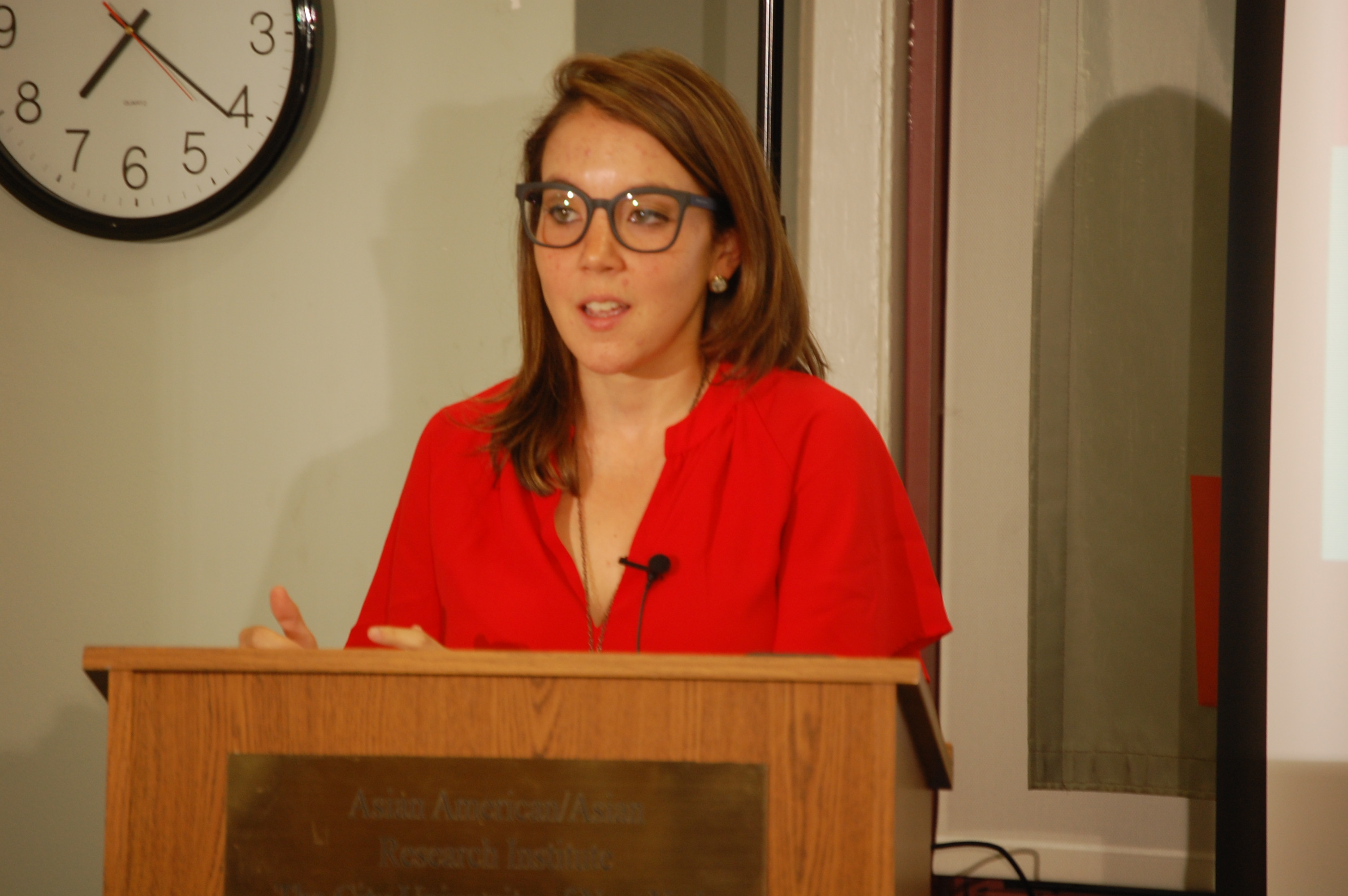
Based on ten months of ethnographic fieldwork with Korean American immigrant rights organizers, and the Black and Latinx organizers with which they attempt to build solidarity, this presentation explores how the aforementioned tensions unfold in activists’ daily interactions as they attempt to build an interracial solidarity movement at a moment of intensified anti-immigrant rhetoric and policy-making.
In the past twenty years, a 249% growth in undocumented migration from South Korea has contributed to the emergence of socially progressive Korean American immigrant rights organizations committed to solidarity building with other racialized immigrant groups. The rise of these organizations unfolds amongst tension between Korean Americans with diverse political orientations, and between differently racialized immigrants. Organizers are confronted with the contentious legacies of the so-called Black-Korean conflicts of the 1980s and 1990s. They also contend with Asian American exceptionalism narratives that conspire to both render Asian American migrants as the more “desirable” foils to their Black and Latinx counterparts, and to delegitimize claims by Black and Latinx of continued racialized oppression. What does it mean then to attempt to build an AAPI immigrant rights movement that accounts for these complex dynamics? And, what do these encounters reveal about the intersection of racialization and undocumented status?

By drawing attention to undocumented Korean Americans, who are often low-wage, irregular workers, Korean American immigrant rights organizers upset popular depictions of Korean Americans as uniformly successful, “self-made” entrepreneurs, a characterization that belies increasing Korean American socioeconomic diversity over the last twenty years. Tensions arise as organizers negotiate and attempt to build new forms of Korean American collective identities that encompass diverse, and emergent, Korean American lived experiences. What can the internal politics regarding undocumented immigration in Korean American communities reveal about how differently positioned immigrant groups articulate diverse understandings of human value and immigrant belonging?

